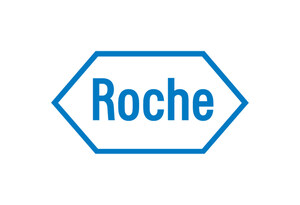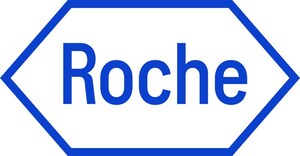
INDIANAPOLIS, Dec. 1, 2017 /PRNewswire/ --
- Company supports FDA recommendation for lab, clinician and patient education about reporting all prescription medication and supplements prior to blood draws.
- Education on potential interferences in lab testing is important in mitigating risk
- Standard multivitamins contain less than 1 mg of biotin, which poses no risk of interference in Roche assays
- Roche package inserts advise to wait at least 8 hours between the last high biotin dose over 5 mg and blood testing
Roche (SIX: RO, ROG; OTCQX: RHHBY) supports the recommendation issued by the U.S. Food and Drug Administration (FDA) that patients should report if they are taking biotin as a supplement to their health care providers as part of their patient profile
As with any laboratory test, following pre-test guidance is critical to ensuring accurate results. With high dose biotin (more than 5 mg per day), an at least 8-hour wait time before blood draw for a Roche immunoassay test is recommended.
"The package inserts for our assays, including our Troponin T Gen5 assay, contain product-specific detail regarding biotin thresholds," said Chief Medical Officer Dr. Alan Wright, Roche Diagnostics Corporation. "Because laboratory results are such a critical part of the full clinical assessment of a patient, health care providers and patients should always discuss prescriptions, over the counter medications and supplements/ nutraceuticals taken prior to laboratory testing and interpret lab test results in context with the clinical presentation to ensure patient safety."
Roche further supports the FDA's call for education to mitigate the possibility of interference from biotin through an educational website (biotinfacts.roche.com) dedicated to facts about biotin and lab testing.
"Data about both biotin kinetics (how it is metabolized and excreted from the body) and biotin sales provide important insights that laboratorians may use to educate their clinical partners and help promote patient dialogue and good testing practices," Wright continued.
Roche pharmacokinetic study data provide direction for testing window
Roche has conducted a biotin pharmacokinetic study (n=54) published in the peer-reviewed International Journal of Pharmacokinetics, to investigate the biotin elimination periods for healthy subjects taking 5 mg and 10 mg of biotin.1 The study showed that 100% of subjects taking 5 mg of biotin per day were at below a tolerance threshold of 30 ng/mL within 3 1/2 hours; and 100% of subjects in the study taking 10 mg of biotin per day are below a tolerance threshold of 30 ng/mL within 8 hours.
These findings confirm that the Roche biotin-streptavidin based immunoassay recommendation of an at least 8-hour wait time should be observed, as stated in the package insert. This 8-hour wait time is essential for accurate test results for patients receiving high-dose biotin therapy (more than 5 mg per day).
Low doses of biotin (less than 5 mg per day) are most commonly sold
Nielsen biotin sales data over the past three years, for the US market, indicate that while biotin sales have been trending slightly upward over a three-year period (July 2014-June 2017), sales in the last year (July 2016-June 2017) have slowed to 3.3% versus the prior 12 months (6.4%).2 There are no data indicating a relationship between increased sales of biotin and an increased occurrence of biotin interference.
About Roche
Roche is a global pioneer in pharmaceuticals and diagnostics focused on advancing science to improve people's lives. The combined strengths of pharmaceuticals and diagnostics under one roof have made Roche the leader in personalised healthcare – a strategy that aims to fit the right treatment to each patient in the best way possible.
Roche is the world's largest biotech company, with truly differentiated medicines in oncology, immunology, infectious diseases, ophthalmology and diseases of the central nervous system. Roche is also the world leader in in vitro diagnostics and tissue-based cancer diagnostics, and a frontrunner in diabetes management.
Founded in 1896, Roche continues to search for better ways to prevent, diagnose and treat diseases and make a sustainable contribution to society. The company also aims to improve patient access to medical innovations by working with all relevant stakeholders. Thirty medicines developed by Roche are included in the World Health Organization Model Lists of Essential Medicines, among them life-saving antibiotics, antimalarials and cancer medicines. Roche has been recognised as the Group Leader in sustainability within the Pharmaceuticals, Biotechnology & Life Sciences Industry nine years in a row by the Dow Jones Sustainability Indices (DJSI).
The Roche Group, headquartered in Basel, Switzerland, is active in over 100 countries and in 2016 employed more than 94,000 people worldwide. In 2016, Roche invested CHF 9.9 billion in R&D and posted sales of CHF 50.6 billion. Genentech, in the United States, is a wholly owned member of the Roche Group. Roche is the majority shareholder in Chugai Pharmaceutical, Japan. For more information, please visit www.roche.com.
All trademarks used or mentioned in this release are protected by law.
References
1. Grimsey et al 2017 International Journal of Pharmacokinetics, doi; 10.4155/ipk-2017-0013
2. Nielsen FDM Data ending 06/2017
For additional information, please contact:
Amanda Biedess
Roche Diagnostics Corporation
Indianapolis, IN
317.445.8716
Christina Vysma
Roche Diagnostics Corporation
Indianapolis, IN
317.292.2920
SOURCE Roche







Share this article